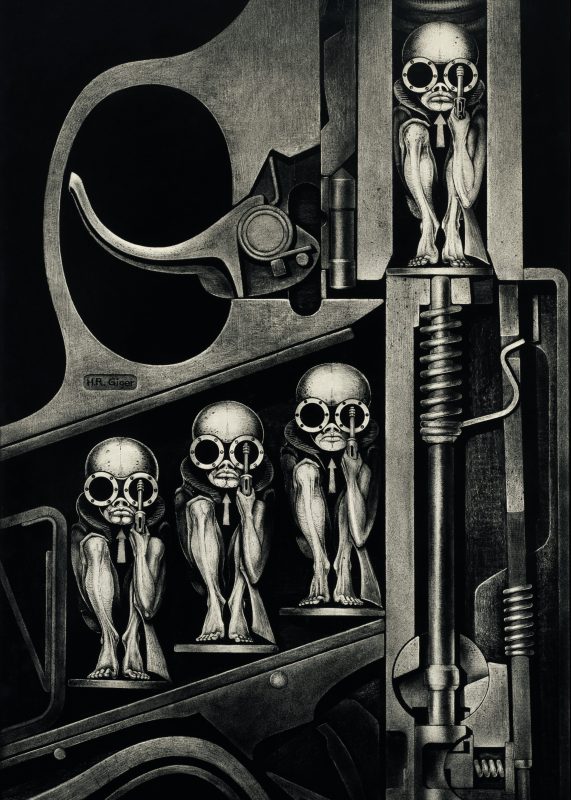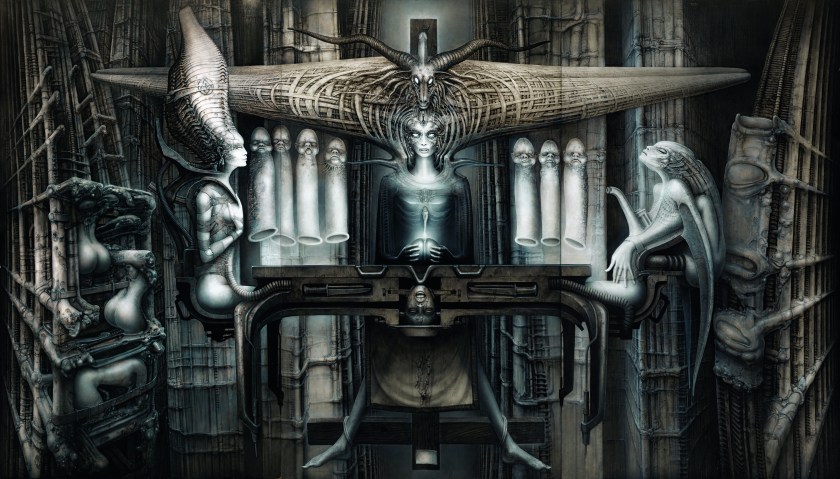
Hans Rudolph “H.R.” Giger is best known as a set designer on Ridley Scott’s groundbreaking sci-fi film Alien, a job he won an Academy Award for. The surrealist artist created a unique aesthetic that shaped the entire Alien franchise and would come to define the world of horror.
Giger had been a successful as a surrealist painter before he worked in the film industry. The Swiss artist would keep a sketchbook next to his bed, drawing the night terrors that afflicted him. Though his mediums varied widely, his aesthetic was steadfast: a blend of industrial and the quasi-demonic, which Giger referred to as “biomechanic.”
Director Scott was in the process of designing the horrifying aliens for his film when he came across Giger’s Necronom IV. It was this creature—with the skeletal frame and protracted back skull—that would become his “Xenomorph.” Artists frequently influence each other within the same genre, but when art influences another medium altogether, you know it’s transcendent. Giger would go on to work on the next two Alien sequels, as well as the cult classic Dune.
In retrospect, the “Xenomorph” was just one of the most popular expressions of Giger’s biomechanical arsenal of creatures, which consistently merged hybrids of human and machine into images of haunting power and dark psychedelia. A new monograph pays homage to this unique vision that drew on demons of the past and evoked mythologies for the future. Featuring seven fold-out spreads, it shows the complete story of Giger’s life and art, his sculptures, film work, and iconic album covers, as well as the legacy he has left us in his own artist’s museum and self-designed bar in the Swiss Alps.
Feast your eyes (though some may prefer to look way) on more of the horrifying works of Hans Rudolf Giger below. You can order a copy of the limited edition monograph for $900 by clicking here.
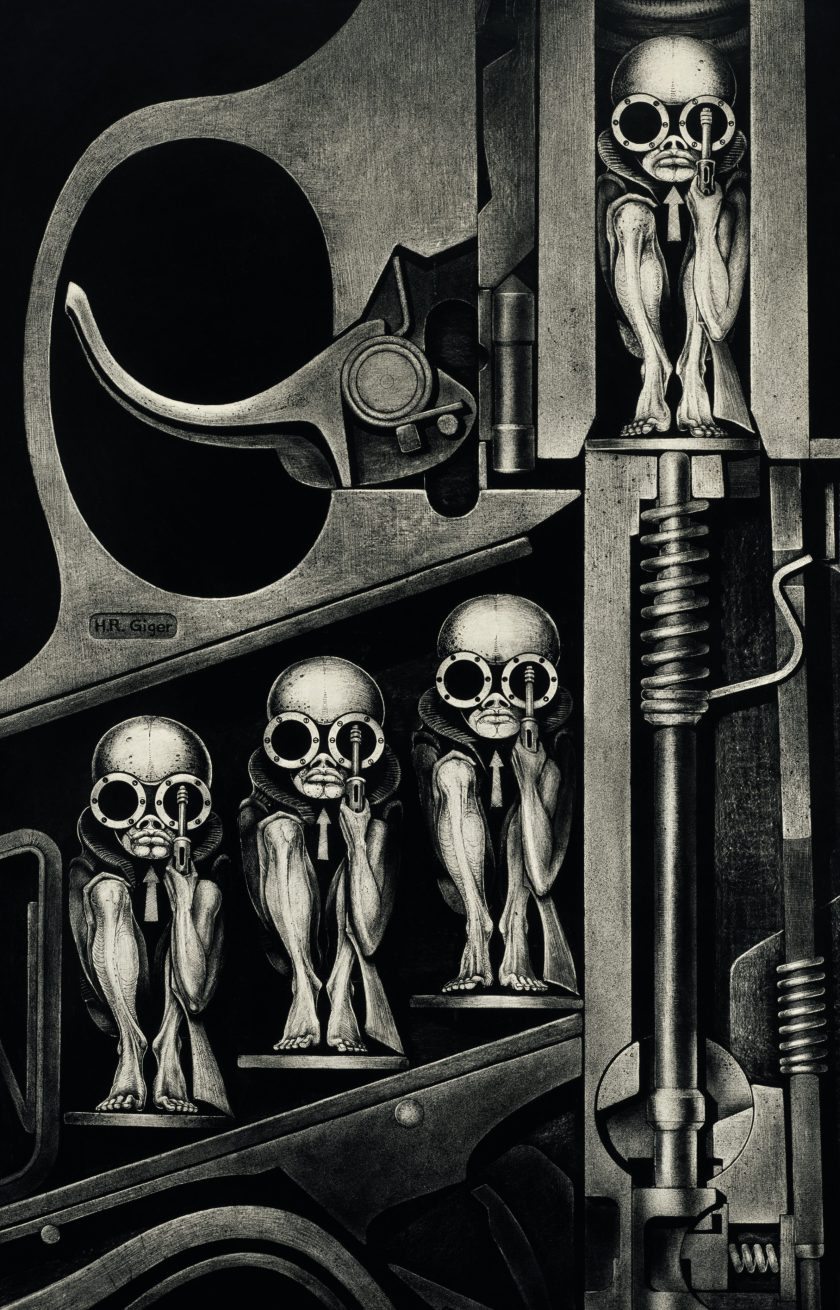
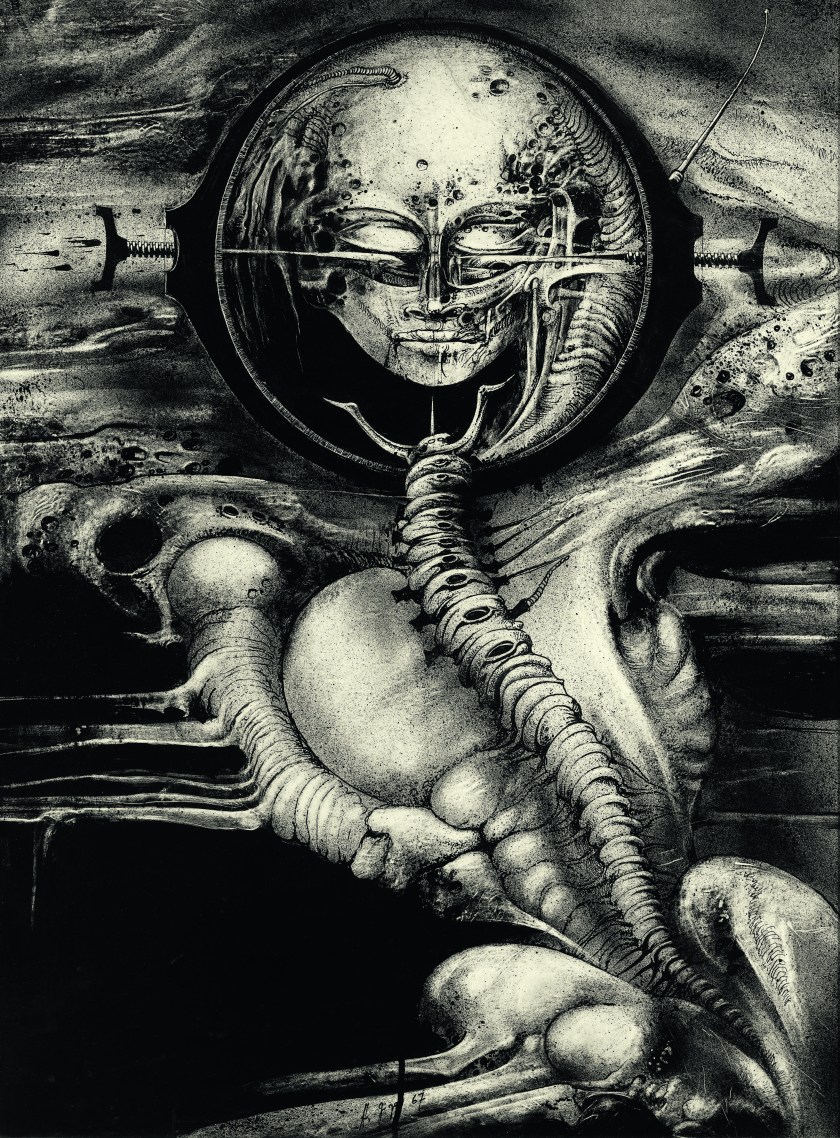
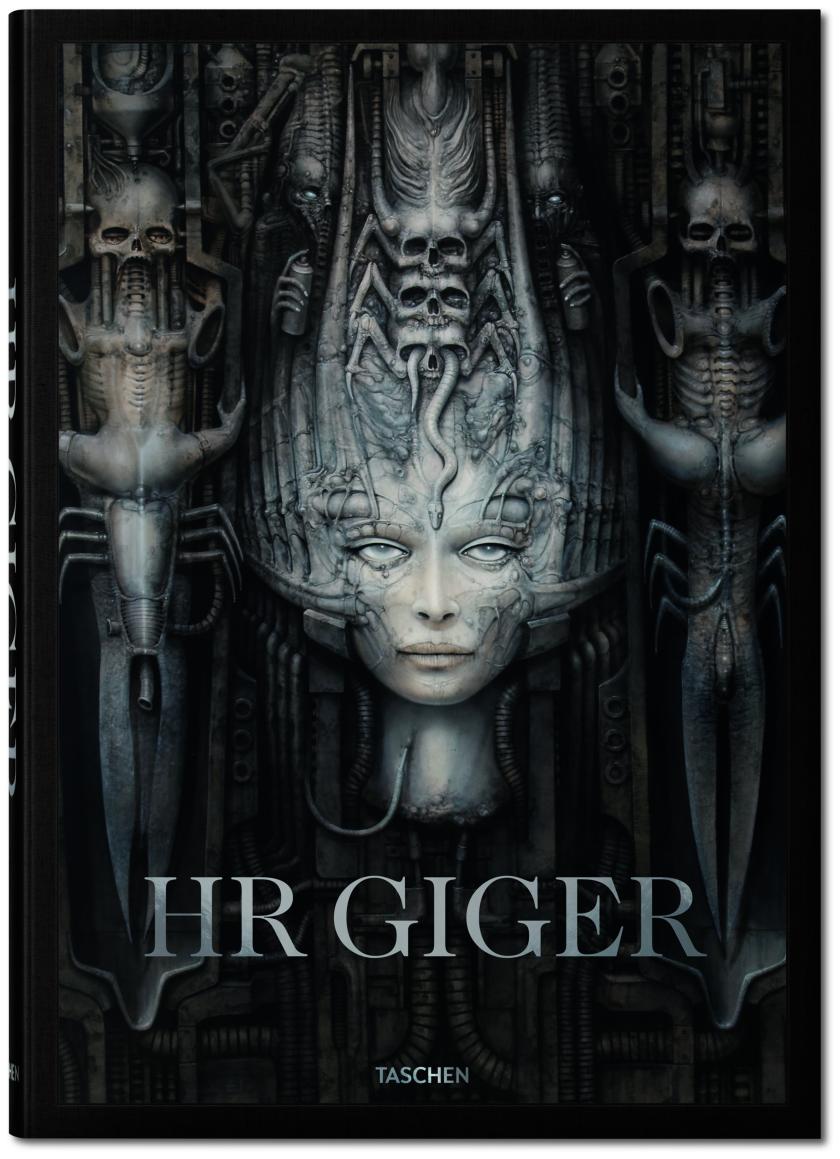
This article was featured in the InsideHook newsletter. Sign up now.
